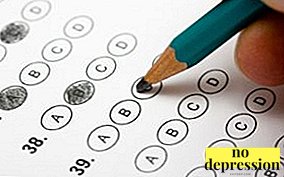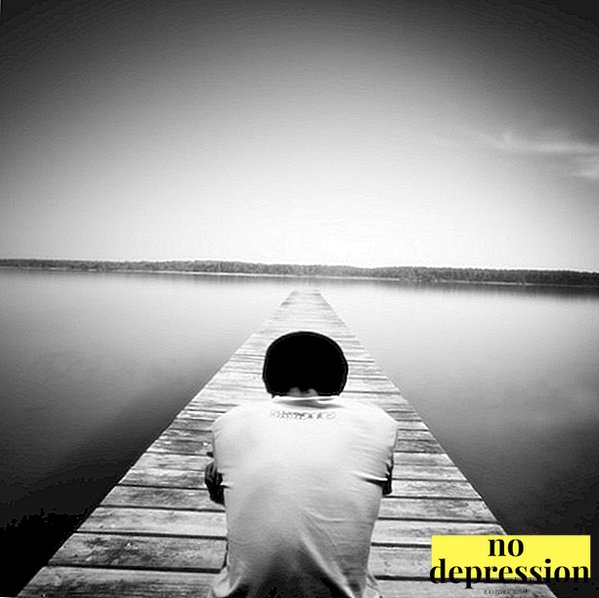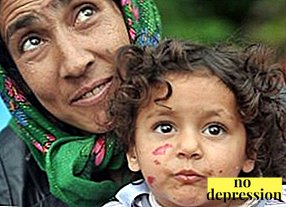Towards self-realization, to achieve your goals each person meets certain obstacles and difficultieswho are forced to overcome or to accept the fact that they can not afford it.
However, different people in similar situations tend to see different reasons for their success or powerlessness.
Personality Locus - what is it? How is it related to human activity and what does it mean in achieving success?
Definition in psychology

What is the locus of control?
Personality Locus in Psychology Means individual predisposition to interpret their failures and successes, achievements or failures due to external or internal factors.
This characteristic is fairly stable throughout life, but may be subject to change in the framework of human socialization.
Who introduced this concept?
When and by whom is the concept introduced into science? Such a theoretical concept as a locus of personality control appeared in psychology relatively recently - in 1954.
It was introduced by the famous psychologist Julian Rotter, the winner of the prestigious award “For outstanding scientific achievements,” initiated by the American Psychological Association.
Kinds
What is the locus of control? Depending on how a person explains his achievements, two types of locus of personality control are distinguished:
- External locus of control. Its other name is the external locus of control. In this case, the individual is dependent on external circumstances. It is to them that he attributes his own success or failure - this may be the influence of other people or a certain situation in which it is difficult or, on the contrary, it is easy enough to carry out his plan - however, it is external factors that determine a person’s readiness for action and are dominant in his motivation to act.
- Internal locus of control. Also known as the internal locus of control. At the same time, an individual takes responsibility for the reasons for failure or success on himself, believes that it was his actions and personal qualities that influenced the outcome of one or another important situation for him.
In this case, internal human factors become decisive.

Types of people and locus of control
Although in reality it is quite rare to find individuals who are exclusively inherent in the external or internal, that is, offset locus of controlDepending on this, the following two types of people can be distinguished:

Extreme
This type of people tend to expect external stimulation their actions.
They dependent on the circumstances and the people around themThey need approval and support from their side, but they can also be blamed for not being able to achieve a solution to their problems. Also, they themselves are not inclined to provide support.
Externalities, as a rule, are emotionally unstable, tend to change their decision. They can blindly follow someone else's advice, more trusting and addicted to the opinions of others.
However, the external type of people adapts more easily to changes, adapts more quickly to new conditions.
Internals

This type of people is characterized by dedication and diligence, integrity and riskiness.
All their achievements and failures they attributed only to themselves and their qualities.
They emotionally stable, tend to adjust the situation and change them for their own benefit, as well as to suppress the opinions of others, although they themselves do not tolerate manipulation or interference in their plans.
People of internal type are more concerned about their own health, are prone to active struggle. for your comfort and wellbeing.
Self-esteem of internals and externalities is also significantly different - if the former are inclined to consider themselves sociable and kind, more resolute and independent, then the latter often declare their insolvency, self-doubt and selfishness.
How is it related to human activity?
Belonging to external or internal locus control significantly affects a person’s behavior in a given situation, as well as his professional achievements.
People internal type in view of their commitment and responsibility, they achieve greater success in life. They are more focused on focusing on the result of work, they are inclined to plan their activities, which ultimately favorably affects their careers.

Also, unlike externalities, they prefer to work alone.
Internal executives often authoritarian.
They are more initiative and consistent in their steps, prone to defending their point of view.
However, often the internals have set themselves overestimated, unattainable goals, strive change what is beyond their power.
Externalities are more passive in their activities. In case of failures, they like to shift responsibility for their actions to others - for example, to a manager or to their inadequate colleagues, they do not differ in initiative, which rather negatively affects their professional performance.
They do not plan their activities, prefer to postpone problems for later, and as a result such behavior prevents them from achieving success. For effective work externalities require constant monitoring and supervision of the head.
The positive qualities of externalities are that they work better in a team, more practical and adapt faster in a rapidly changing situation.
Komissarova theory
The theme of locus-control occupies a key position in the work of a practicing psychologist. Marina Georgievna Komissarova, also known under the pseudonym "Evolution".
According to her point of view, locus control can be considered as a support in perception and activity.
With this man external type relies on the fact that, outside his power, on another person, on circumstances that should not be tried to resist.

All this leads to a violation of harmonious love or family relationships, professional relationships, failure in any kind of activity.
External locus control interferes with human self-realization, which subsequently leads to dissatisfaction with life, irrational insults and condemnations of the immediate environment.
A person builds defense mechanisms that lead to destructive relationships.
Internal Locus Control allows not only to change the situation for their own benefit, but also to continuously improve. At the same time, a person relies primarily on his own strength, which substantially motivates him to spiritual growth.
Thanks to this, you can get rid of destructive forms of behavior, normalize relations with others and achieve success in professional terms.
Diagnostics and measurement techniques
In Russian psychology, the following methods of measuring the locus of control are most common:
- The scale of the locus of control J. Rotter. This method was developed by Rotter in 1966 and first published in Russian in 1984 by E. Bazhin. It represents 29 positions with different statements - “a” and “b” for each position, determining the belonging of a person to the extensional or internal type.
 Depending on the preferred statements, the person being tested scores points at the extreme positions of the scale of internality or externality. However, the maximum possible number of points for each scale does not exceed 23, since 6 questions are “background”.
Depending on the preferred statements, the person being tested scores points at the extreme positions of the scale of internality or externality. However, the maximum possible number of points for each scale does not exceed 23, since 6 questions are “background”. - Questionnaire USK (level of subjective control) EF Bazhina in collaboration with E. A. Golynkina and A. M. Etkind. This questionnaire consists of 44 items. Subscales have been added to it regarding areas of success, situations of failure, attitudes towards health, professional and family relationships.
- OSLK (questionnaire of subjective localization of control) S. R. Pantileeva and V. V. Stolin. It consists of 32 points, 26 of which are working, and 6 - background. It has a one-dimensional scale that measures the direction of the locus of personality control.
How to develop an internal locus control?
A specific locus control can be developed - it is not worth considering it as something static, not changeable.
At the same time, people most often want to develop an internal locus control, as this will increase their effectiveness in the professional field.
To develop the internal locus control, one can resort to the following autotraining:
- Define your goals you want to achieve. They will be the motivating factor for self-improvement and change your behavior. Do not refuse them, despite the variability of situations - be persistent in wanting to achieve them.
- Determine the sequence to achieve your goals. Plan your future steps and strive to stick to your own plan. Make a habit of planning your affairs, writing down daily tasks on a daily basis and noting how they are done.
- Pay attention to others - they may speculate on your dependence on them and use you for their own purposes. Try to counteract the manipulation of you.
- Take for granted that it is your goals and motives that have the highest priority..
In fact, people are absolutely normal to the fact that someone protects and defends their own opinion, even if you openly declare that it is so convenient for you.
- Take the initiative. If you see a solution that is more convenient for you in a given situation, feel free to offer it to your surroundings.
- If you fail, think - How would the outcome of this situation change if you took other actions under the same circumstances. Determine for yourself a reaction that would contribute to the achievements of your long-term interests.
- Do not strive for momentary pleasure. - Be focused on the future. It is the long-term prospects that are most important, even if it is necessary to temporarily sacrifice your own comfort.
- Appreciate the opinion of your surroundingsbut be sure to match it with your own. Do not allow others to judge your own actions - only you yourself know what will be best for you.


Despite the fact that for a more successful career, internal locus control is preferred, Ideal is the uniform development of external and internal loci.because the achievement of the extreme position on this scale may adversely affect the efficiency of human activity.
It is necessary not only to methodically and purposefully achieve your own goal, but also to be ready to accept the situation as it is, if it cannot be changed.
Also, the goal itself must be realistic, do not overestimate their own capabilities - you need to adequately respond to any external manifestations, striving for objective self-esteem.
What is the locus of control? About this in the video:

 Depending on the preferred statements, the person being tested scores points at the extreme positions of the scale of internality or externality. However, the maximum possible number of points for each scale does not exceed 23, since 6 questions are “background”.
Depending on the preferred statements, the person being tested scores points at the extreme positions of the scale of internality or externality. However, the maximum possible number of points for each scale does not exceed 23, since 6 questions are “background”.

